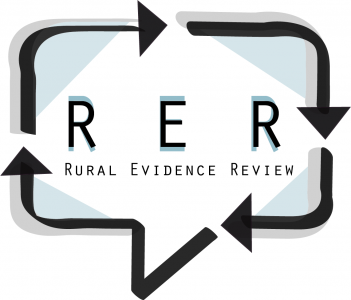UBC researcher Dr. Jude Kornelsen didn’t know what she was getting into when she and her team started asking rural residents about their health care needs.
The co-director of the Centre for Rural Health Research and her team set out to find some guidance for their research but when they started sending out surveys, a flood of responses answered.
“I was really surprised at the time people are taking to write very thoughtful comments down about the challenges they experience,” says Kornelsen. “We get quite a few responses that are saying, you know, thanks for doing this, we don’t feel like we have a voice in health planning.”
Rural Evidence Review (as it’s called) team has reached out to each of the province’s 168 rural communities (as identified by the Ministry of Health) through newspapers, chambers of commerce, and other means of engagement. So far, they’ve received around 1,200 responses.
“We’re pretty confident that we’re getting a really good cross section of rural B.C.,” says Kornelson. “We can write it up and then we can use it as advocacy with the health authorities and the Ministry of Health around what needs attention across rural communities.”
Calling the Undercurrent from Salt Spring, Kornelson sympathises with the joys and trials of living surrounded by water.
“I have the privilege of living on and working from Salt Spring Island and that’s actually where a lot of my interest in access to rural health services comes from. Kind of a lived experience,” she says.
And despite Bowen’s proximity to world class medical facilities, Kornelson maintains that the island has much in common with its more isolated counterparts (Bowen is considered by the Ministry of Health as rural).
“Anytime you’re surrounded by water with a ferry that doesn’t go 24-seven, you’re pretty rural,” she says.
Common issues Kornelson and team have heard so far include access to family physicians, getting to and from appointments (especially for people who don’t drive), seniors’ care, maternity care and support for mental health and substance use.
While the team will start analyzing the responses at the end of May, they’re keeping the survey open for anyone in rural communities who would still like to participate.
“We’re recognizing that this is really important for citizen patients to be able to articulate their priorities for health services in B.C. and there’s not, that we’ve come across anyway, not a lot of other venues to do that.”
The team is also putting together a rural citizen patient expert panel for residents to give feedback about what kind of research and data is needed.
For more information and to fill out the survey go to the Rural Evidence Review website. There’s phone support for those who have difficulty online (call project coordinator Christine Carthew at (604) 827-2193).



